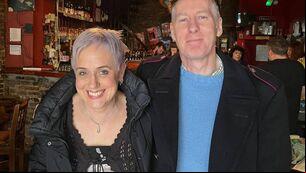Efforts in Cork to drive sustainable tourism ahead of World Gastronomic Capital bid


Tourism was the reason more than 200 people from across the tourism, hospitality, food and drink sectors gathered at Cork International Hotel in recent weeks for an event with a particular focus on sustainable tourism and how Cork is leading the way.

Rosie Fuller, of the food redistribution network FoodCloud, said that in 2024, 1.25m meals per week were re-distributed by Food Cloud alone. Other initiatives have come on stream to ensure as much excess food as possible is repurposed in different ways, such as FoodCloud Kitchen, Food Truck and Academy.

Their ‘open source’ policy for sharing knowledge and findings from the project with others - from community groups to corporate businesses, even the Irish Naval Service – has meant urban soil projects are now cropping up all over the country.







 App?
App?


